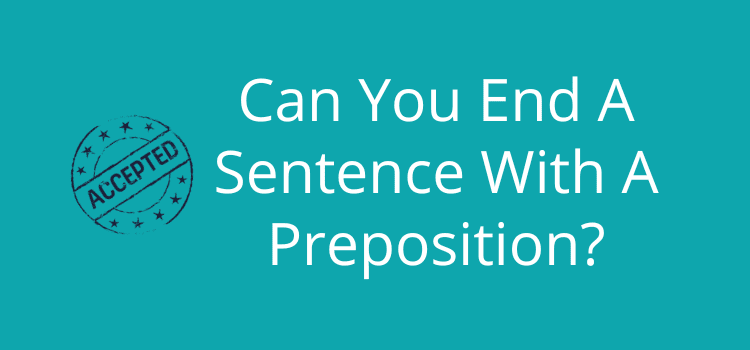
Almost every style guide will tell you to avoid the split infinitive.
But is this generalized rule always valid?
We all know the famous Star Trek example of breaking the rule: to boldly go where no man has gone before.
It would sound awkward if I applied good English grammar. My grammar checker correction says it should read: to go where no man has gone before boldly.
Split infinitive grammar
It is one grammar rule that English speakers are always breaking. But when it occurs in writing, the purists can get annoyed.
I am sure you learned at school that you should never split an infinitive. Is it really a rule you have to follow to the letter?
Before I try to answer the question, I’ll quickly define the infinitive.
Unlike other languages that only have one-word infinitives, English infinitives have two forms.
The common infinitive form of the verb is two words. It adds the marker to before the main verb. Simple examples are to run, to jump, and to look. Infinitives don’t reflect a tense or time and never have to agree with a subject.
A split occurs when the marker to is separated from the main verb.
But there is also the bare infinitive, which we use after modal verbs. Examples include should run, would jump, and must look.
With the bare form, there is no problem because it doesn’t use to. It is always possible to add an adverb before the verb.
You can say, should quickly run, would often jump, and must always look.
However, with the to-infinitive, problems often arise when you add a word or words between to and the verb.
Can you boldly split?
The Chicago Manual of Style refers to split infinitives as shibboleths.
The odd-sounding word means a custom, principle, or belief distinguishing a particular class or group of people, especially a long-standing one regarded as outmoded or no longer important.
The article says that euphony, emphasis, clarity, or all three can be improved by splitting the infinitive in certain situations.
It would seem to agree that the adverb boldly is correctly placed in the Star Trek motto.
Another to agree is Mignon Fogarty, who is probably better known as the Grammar Girl.
She says that the only logical reason to avoid splitting infinitives is that there are still many people who mistakenly think it is wrong.
Split infinitive problems
If I take a simple example of a sentence that takes an adverb, you can see why you sometimes need to split the infinitive.
He chose to gradually dispose of his collection.
If we try to correct this phrase grammatically, problems arise.
It is because each option fails to say clearly that the verb dispose is the gradual process. In each phrase, the adverb gradually modifies the verb to choose or the noun collection.
He gradually chose to dispose of his collection.
She chose to dispose of her collection gradually.
They chose gradually to dispose of their collection.
You always have options
But with these two phrases, you could decide to use either option.
Apple iPhone prices are expected to gradually increase.
Apple iPhones are expected to increase in price gradually.
Each sentence sounds natural because they are both modifying the price.
In the Journal of English Linguistics, To Split or to Not Split: The Split Infinitive Past and Present, Moisés D. Perales-Escudero cited this quote from The Cambridge Guide to English Usage.
Don’t split an infinitive if the result is an inelegant sentence. Do split infinitives to avoid awkward wording, to preserve a natural rhythm, and especially to achieve the intended emphasis and meaning.
From this, you could say that the rule is that if it sounds awkward, don’t split. But if it sounds natural, you can happily split the infinitive.
Adverb examples
When we place an adverb or adverbial phrase between the infinitive marker to, and the root verb, we create a split infinitive. Generally, writers class this as a grammatical error.
But it is not always the case. Choosing to divide the marker and the verb always depends on how a sentence reads.
In this example, the first two sentences sound natural, while the last two sound awkward.
The film director managed to accurately portray the wartime events.
The film director managed to portray the wartime events accurately.
The film director accurately managed to portray the wartime events.
The film director managed to portray accurately the wartime events.
When in doubt, you should always make your choice based on what word order reads better.
I don’t think it is necessary for you to fully and completely understand the rule.
I don’t think it is necessary for you to understand the rule fully and completely.
I don’t think it is fully and completely necessary for you to understand the rule.
He agreed to immediately resign from the government.
He agreed to resign from the government immediately.
He immediately agreed to resign from the government.
There are almost always ways to avoid splitting the infinitive by rewriting a sentence. Many times, this is the correct approach.
But in some cases, there is no alternative. Arnold Zwicky makes this point that you can split infinitives.
We expect it to more than double.
We expect it more than to double.
We expect it to double more than.
As you can see, when we use the adverbial phrase, more than, only the first phrase using the split infinitive is possible.
More Reading: How To Use Mistook and Mistaken In Your Writing
Conclusion
When you use a grammar checker, it will always highlight any infinitive error in your text. Some even give you a replacement phrase to use.
But you should always check how the sentence reads. Does it make sense and says exactly what you mean?
Online tools are great for finding potential grammar mistakes, but they are not human proofreaders.
Like double negatives, if you use a split infinitive, it is not necessarily an error.
It happens when you want to intentionally modify the root verb in a sentence. Or I should say, it is usually when you intentionally want to modify the root verb in a sentence.
I have to say that, as a general rule, it is better in most cases to keep your infinitives together.
However, the rule is certainly not as strict as it was in days gone by. The choice now is up to you.
Related reading: Can You Start A Sentence With Because?
Share This Article



When you split the infinitive with “not” you can end up with a difference in meaning.
“I decided to not play the lottery.” is a clear statement of what was decided.
“I decided not to play the lottery.” simply states what was not decided.
I could have decided instead to lose 10 pounds.
In a case like this I think it’s best to resist the shibboleth telling us to not split.
I don’t see an option to reblog from here, so I’ll reblog from another site. I’m glad to see common sense on this issue. So silly. You are so right: make sure the choice says what you meant to say, and listen to the sentences you create as you move that adverb around. Hurrah.
Thanks for your kind comment. But a note on reblogging, It is only available on wordpress.com websites. Unfortunately, it is not available on self-hosted sites like ours. More is the pity.